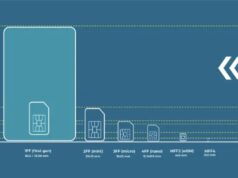In questi giorni ho partecipato a un pò di convegni sugli smart contract per aggiornarmi visto che mi diverto a scrivere qualcosa sul mondo che mi circonda. Trattasi di argomento indubbiamente complesso e fonte di dubbi e preoccupazioni. Ho capito poco, nonostante sforzassi le mie stanche sinapsi mentali. Mi ha colpito la circostanza che i tanti relatori parlassero tutti allo stesso modo e usassero le stesse perifrasi, pur provenendo da ambienti e professioni le più disparate: in qualche modo, l’ecosistema, esiste prima lo smart contract o le regole, tecnologia o tecnologo, DLT, interoperabilità, complessità, e via di questo passo. E così per la prima volta mi sono rivolto all’AI (chat.openai.com). Ecco il mio articolo sull’argomento, “scritto” in pochi attimi.
——————-
Smart contracts are self-executing contracts with the terms of the agreement directly written into lines of code. They are built on blockchain platforms, such as Ethereum, and enable the automation and enforcement of agreements without the need for intermediaries.
Here are some key points about smart contracts:
Automation: Smart contracts automate the execution of an agreement by defining the conditions and actions that should occur. Once the predefined conditions are met, the contract is automatically executed without requiring any manual intervention.
Decentralization: Smart contracts are typically deployed on a blockchain network, which is decentralized and distributed across multiple nodes. This ensures that the execution and enforcement of the contract are not controlled by a single entity, making it more secure and tamper-proof.
Immutability: Once a smart contract is deployed on a blockchain, it becomes immutable, meaning its code and execution cannot be modified or tampered with. This feature enhances trust and transparency in the agreement since all participants can independently verify the contract’s execution.
Self-Enforcement: Smart contracts contain rules and conditions that define the actions to be taken based on specific triggers or events. These rules are programmed into the contract’s code and are automatically enforced, eliminating the need for intermediaries or third parties to ensure compliance.
Wide Applicability: Smart contracts have applications in various industries and use cases, including finance, supply chain management, real estate, insurance, and more. They enable the creation of decentralized applications (DApps) and support the development of blockchain-based ecosystems.
Tokenization: Smart contracts can be used to create and manage tokens on blockchain networks. These tokens can represent digital assets, cryptocurrencies, or even ownership rights to physical assets. Smart contracts govern the transfer, ownership, and distribution of these tokens.
Limitations: While smart contracts offer numerous benefits, there are some limitations to consider. They are bound by the capabilities and limitations of the underlying blockchain platform. Additionally, smart contracts may suffer from programming errors or vulnerabilities, leading to unintended consequences or security breaches.
Overall, smart contracts provide a trustless and efficient way to execute and enforce agreements in a decentralized manner, offering transparency, automation, and security.





